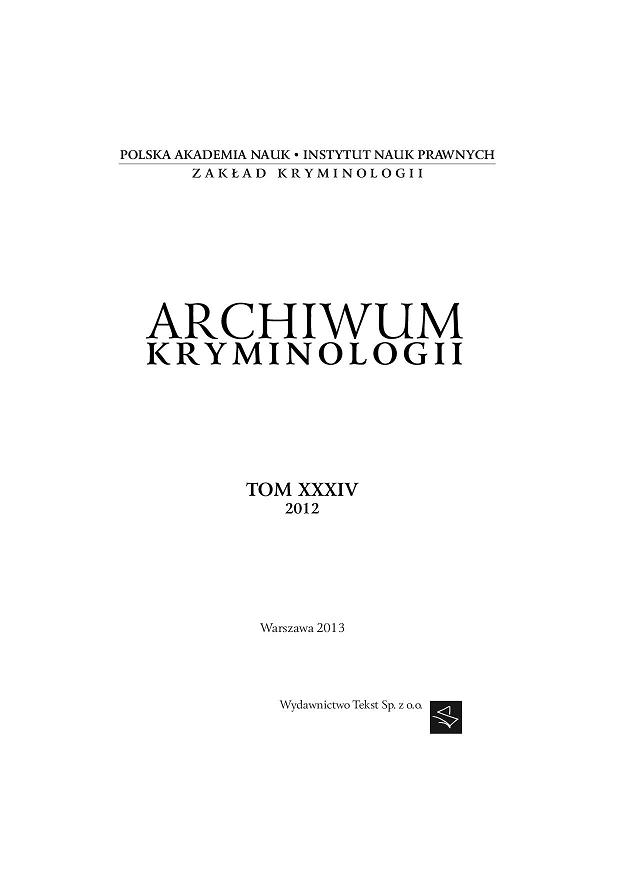Młodociani w świetle prawa i badań kryminologicznych
The young adult offenders in the light of law and criminological studies
Author(s): Paulina WiktorskaSubject(s): Law, Constitution, Jurisprudence
Published by: Instytut Nauk Prawnych PAN
Keywords: YOUNG ADULT OFFENDERS; CRIMINAL LAW;
Summary/Abstract: The article discusses the problem of young adult offenders in the light of provisions of current Polish criminal law and of criminological studies on this category of convicts over the years. Polish criminal code of 1997 in the article 115 paragraph 10 defines a young adult offender as a person 21 years old who commits a crime or a person under 24 years who is tried in a court of first instance. Two basic issues are involved in the notion of a young adult offender. First the age limits of the subject, second the character of penal measures to be used towards this particular category of offenders. Both issues are discussed at length in the article, particularly with respect to the fact that criminal law makes use of scientific findings from sociology, psychology and medicine to create normative regulations concerning conditions of liability of young adult offenders for their unlawful acts. As an example, one may discuss particular normative directives of the sentence provided for a young adult offenders as the court is obliged to, most of all, educate and resocialise. Educational and resocialisation aspect of the punishment does not mean that young adult offender are treated leniently, sometimes it may indicate a longer time of resocialisation and, at the same time, a longer imprisonment sentence to execute this objective . While sentencing a young adult offender, the court should decide in such a manner so that the liability of the accused is directed more into educational model than repressive one, yet this does not denote resignation from administering the penalty of unconditional imprisonment. Still, it needs to be admitted that in the Polish legal system there are few concrete provisions of law which define in detail how a young offenders should be treated which, according to the author, is somehow concerning. There are significant differences in criminal execution law. First, as a rule, young adult offenders should be imprisoned separately from adult ones. This is understandable because of susceptibility of young people to influence and pressure from adults. Moreover, young adult offenders are subject to system of programmed educational and resocialisation measures during imprisonment, which on one hand seems right, on the other evokes a series of questions and reservations. Discussion of normative situation of young adult offender are illustrated with selected criminological studies carried out so far concerning this category of offenders. Reported results of research show that young adult offenders have typical features characteristic for the whole group. Information on dysfunctional families and alcohol problems are always present. It is accompanied by low education level of their parents and their unemployment. Problems in the behavior of such offenders appear already in kindergarten age and increase during school education while the education process itself leaves a lot to be desired.
Journal: Archiwum Kryminologii
- Issue Year: 2012
- Issue No: XXXIV
- Page Range: 135-156
- Page Count: 22
- Language: Polish

